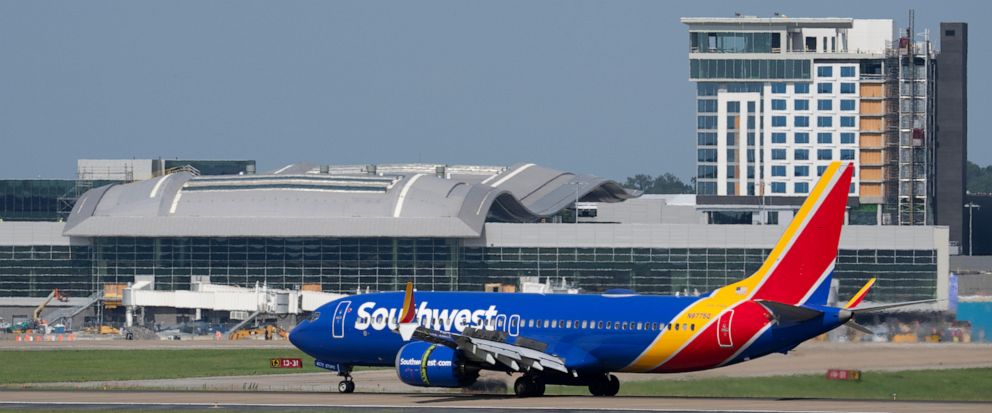Disagreement Arises over Nashville Airport’s Authority under New State Law: US and Tennessee Officials at Odds
The Nashville International Airport, one of the busiest airports in the United States, has become the center of a heated dispute between federal and state officials. The disagreement stems from a new state law that grants more authority to the Tennessee government over the airport’s operations, a move that has raised concerns among federal officials.
The controversy began when Tennessee Governor Bill Lee signed into law a bill that transfers control of the Nashville airport from the Metropolitan Nashville Airport Authority (MNAA) to a new board appointed by the state government. The law, which took effect on July 1st, has sparked a fierce debate over the extent of state control and potential implications for the airport’s efficiency and safety.
Proponents of the new law argue that it will enhance transparency and accountability in the airport’s management. They claim that the MNAA, which was previously responsible for overseeing the airport’s operations, lacked proper oversight and was not fully accountable to the state government. By giving the state more control, supporters believe that the airport’s decision-making process will be more aligned with the interests of Tennesseans.
However, critics, including federal officials, have expressed concerns about the potential negative consequences of this transfer of power. The Federal Aviation Administration (FAA) has raised questions about whether the new law violates federal regulations and could jeopardize the airport’s federal funding. The FAA argues that any changes to an airport’s governance structure must be approved by the agency to ensure compliance with federal guidelines.
Furthermore, opponents worry that political interference could compromise the airport’s operations. They argue that having a board appointed by the state government may lead to decisions based on political considerations rather than professional expertise. This could potentially hinder the airport’s ability to attract airlines, maintain safety standards, and efficiently manage its operations.
The disagreement between federal and state officials has escalated, with both sides refusing to back down. Tennessee officials argue that the state has the right to exercise control over the airport, citing similar arrangements in other states. They maintain that the new law is within the state’s constitutional authority and will not impede the airport’s operations.
On the other hand, federal officials are adamant that the airport’s governance structure must comply with federal regulations to ensure the safety and efficiency of air travel. They have threatened to withhold federal funding if the state does not address their concerns and seek proper approval from the FAA.
The dispute has also attracted attention from various stakeholders, including airlines, business groups, and local residents. Many fear that the uncertainty surrounding the airport’s governance could have a negative impact on Nashville’s economy, which heavily relies on tourism and business travel.
As the disagreement continues, it is unclear how this issue will be resolved. Legal challenges are expected, and negotiations between federal and state officials may be necessary to find a compromise that satisfies both parties. In the meantime, the Nashville International Airport remains caught in the middle, uncertain about its future and the potential consequences of this ongoing dispute.
In conclusion, the disagreement over the Nashville International Airport’s authority under the new state law has created a contentious situation between federal and Tennessee officials. While proponents argue that the law will enhance transparency and accountability, opponents raise concerns about potential political interference and compliance with federal regulations. As the dispute intensifies, finding a resolution that satisfies both parties while ensuring the airport’s safety and efficiency remains a significant challenge.



